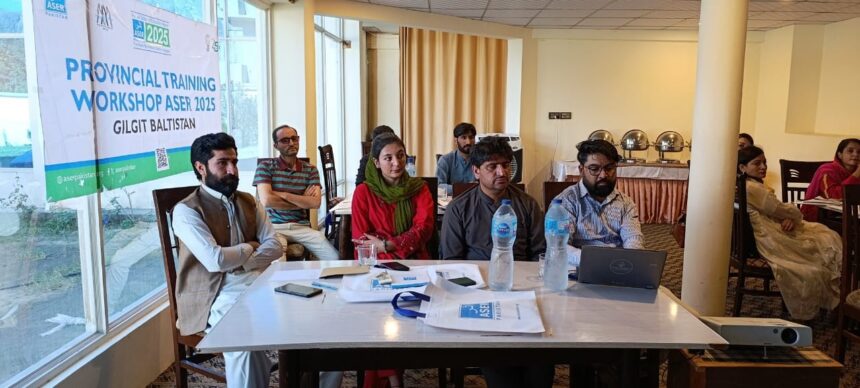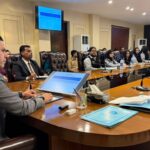ASER Pakistan conducted a two-day provincial Training of Trainers in Gilgit-Baltistan to prepare educators, field leaders, and community partners for the ASER 2025 assessment cycle. The event aimed to build local capacity for citizen-led learning assessments and advance efforts toward more inclusive, higher-quality education in the region.
ASER is known for mobilizing communities to measure basic learning outcomes and generate evidence that can inform education policy and practice. The provincial training focused on methods and standards that will guide the upcoming ASER 2025 activities in Gilgit-Baltistan, ensuring that data collection is consistent, reliable, and community-driven.
Participants included teachers, field coordinators, and representatives from partner organizations who will serve as trainers and implementers in their districts. The sessions emphasized practical skills in administering assessment tools, supervising field teams, and engaging local stakeholders to support participation and follow-up action based on findings.
The training also covered ethical protocols, quality assurance procedures, and strategies for inclusive outreach so that assessments capture the experiences of diverse learner groups across the province. Emphasis was placed on strengthening local ownership of the assessment process, enabling communities to use results for planning and advocacy.
Organizers said the event represents an important step in equipping local actors to lead the ASER 2025 cycle in Gilgit-Baltistan. By enhancing the technical and organizational capacities of trainers, ASER Pakistan aims to produce robust learning data that can be translated into improvements in teaching, learning, and community engagement.
Following the provincial training, trainers will move into district-level preparation and rollout, working with schools and communities to conduct assessments and share actionable findings. The initiative is intended to support evidence-based decision-making and contribute to more equitable learning opportunities across the region.











